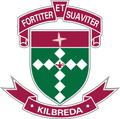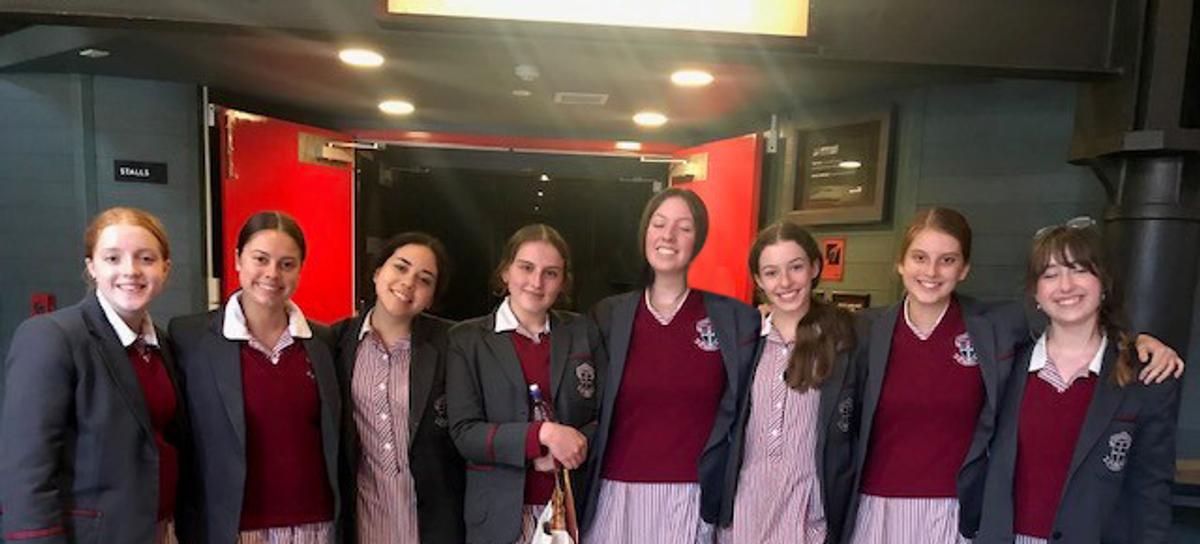English

Creative Writing
British novelist and comic book writer, Neil Gaiman, once said of creative writing: “This is how you do it: you sit down at the keyboard and you put one word after another until it’s done. It’s that easy, and that hard.”
This is what we so often ask of our students when it comes to their creative writing. We ask them to sit down and put one word after another. Sometimes, however, we don’t even allow them to sit at a keyboard, we ask them to hand write. Sometimes we even ask them to do this to time…
And there is probably almost no better way to crush creativity than to ask a student to complete a creative response to time, in exam conditions, in the Hall with 100 other students doing the same thing. Yet this is what the VCE requires us to demand of students. Oh, and it also requires that their creative response be based on a set text and that it works to emulate both the style and ideas of this text. Sounds impossible, right?
Take a look at the piece of writing below by Year 12 student, Jessie Wyatt. Based on Toni Jordan’s 'Nine Days', an Australian novel about family, place and love, Jessie has demonstrated the depth, talent and maturity that so many of our students possess. She has also demonstrated that while the demands of VCE sometimes seem not only unreasonable but slightly ridiculous, that it is possible to produce work of great beauty within these constraints.
Chapter Nine
Kip
Everyone is rushing except Connie and me.
Men in sharp suits and women with hankies tumbled down the station platform, thundering out names of uniformed boys already settled into their carriages. A final procession of soldiers in bent slouch hats marches onto the final compartment. They look like dills to me but I suppose superheros don’t need to worry about what their hats look like.
The train is almost leaving.
The photographer still hasn’t arrived and Connie has her camera ready but she hasn’t taken any photographs yet.
Something is wrong. Her shoulders are tense, her eyebrows furrowed. She’s breathing in double time, short sharp breaths seeping from between her lips in small silver clouds. Her body’s still as a statue but her eyes are flitting about, scouring through the crowded platform.
What is she looking for?
I look back to the station but all I see is a churning sea of olive green wool and the slouched hats of Australia’s champions. All except one person blends into the crowd.
“Will you look at that,” I grab Connie’s slender hand, “It’s Jack Husting!” I jump and wave to try get his attention.
Strange. I saw the Hustings in their kitchen when I climbed the fence to check on Charlie - they can’t be here. It’d be a pity if Jack didn’t have anyone to send him off. We should go say goodbye.
Connie’s body melts, all tension escaping her body, “So it is,” she sighs.
One second she’s a statue and the next she’s a flurry of motion, thrusting her camera into my chest and fighting with her coat to get her arms free. I can feel my fingertips press into the smooth square base of the camera - it’s a lot heavier than I expected. Careful not to bump the lens, I reposition it in my arms so it doesn’t slip. Cradling it, almost.
I only just catch the end of what she’s saying over the swell of the crowd, “And don’t touch anything. Especially not here,” she points to a small silver button on the front of the camera about half the size of my shilling.
“As if I would,” I scoff. Surely she knows I wouldn’t waste film on just anything. It’d have to be real special, just like she taught me.
And she’s off.
Swimming through the crowd, weaving her way through to the train. My mouth pulls into a grin at how closely Ma would resemble a beetroot if she were here. I look around again for the missing photographer. What a drongo to miss an opportunity like this.
When I look back, Connie’s gliding up like an angel into Jack’s open arms. It looks like one of the biblical paintings in the halls at school. My finger barely brushes the small silver button before the lens snaps shut. My first photograph.
And then when their lips meet, it’s just him and her. The whole station dissolves into a still, blurred mass and my chest lifts the air from my lungs and suddenly…I understand.
Love.
Love isn’t anything at all like what the giggling girls up the street describe it to be. It’s not sharp. It’s soft and slow. It’s gentle. Jack has his hands in Connie’s hair and her hands are clenching his jacket. But what value do hands have when they touch the lives of everyone you meet?
Lips, however.
Lips have a special role to play. They touch only the lives of those you love. They light fires in hearts, whisper secret kisses of ‘I love you’; they touch souls. It’s lips that say ‘farewell- until we meet again!’
Or in the case of the train that pulls away from the station, and the girl left slumped over and alone on the platform, it’s lips that say goodbye. For one last time.
- - -
The wind howled along the side of the house, pelting rain against the thin window. Francis had rolled over a while ago- a blessing really. But the room was ice cold and I couldn’t sleep. I crept to the end of the bed and flew out the door, just missing the screeching floorboard. Quietly, I made my way up the corridor, just like how Francis did when he didn’t think anyone was watching. Ahead of me, I could see warm orange light spilling out of the kitchen and hear soft music mixing itself with the light crackle of the fire.
Slowly, I peered around the doorway. And there was Ma and Pa. Connected at the hip, they passed dishes to one another, arms elbow dipped in soapy water. Swaying to the tune of the record. Together.
Nothing between them but a simple, wordless connection from one soul to another. Love.
- - -
The station clock reads twenty-one minutes since the train pulled away. Connie and I are both sitting- she on the edge of the now empty platform, and I on the top of the station steps.
She has wilted since he left. Her shoulders have lost their height and her head is bowed low, chin to chest.
She could be praying.
I put my hands in pockets, hoping for some warmth. Inside, my shilling lies heavily against the rough material. I turn it over a few times, hoping to conjure up some luck that Connie and Jack may again live that moment now captured in the camera’s film.
I lay the shilling flat in my palm, angling it so it reflects the silver sky blanketing the station. I look back to Connie.
I should have given it to Jack.
Jessie Wyatt
Year 12
Year 11
Unit 1 Literature Excursion
On 12 March, the Year 11 Literature students traveled to the Malthouse Theatre to watch a performed interpretation of the play currently being studied, ‘The Importance of Being Earnest.’
Despite the rainy weather, we trekked from Flinders Street Station to the Theatre. By the time we arrived, we were drenched from head to toe. However, once the curtain rose, it was clear that the saturated socks and hair were for a good cause!
Throughout this reenacted adaptation of the text, the verbose and frivolous nature of the characters was displayed. This was extremely engaging, comprehensively depicting the different characters studied. This performance was particularly unique due to being a two-man show, embodying all nine of the characters. There was a comedic aspect of the two men playing all roles, over-exaggerating the transition to each role. This was demonstrated through the use of the constant changing of costumes to represent each character. This emphasised the diversity of each character, outlining the impressive range of the actors.
The interpretation of the play mirrored that of the text, accurately conveying the key concerns surrounding the Victorian values, which are reflected in each character. The mocking of the Victorian era remained prevalent throughout this interpretation. However, to appeal to the modern-day audience, the stage directions written in the play were over-emphasised through the actors, satirising relevant concepts to the viewers. The tension of the play was created through the emphasis of dramatic irony and an extremely fast sense of pace, evoking humour through the frivolous nature of the actors as they changed roles. Therefore, the innovation of actors created an extremely engaging and humorous performance.
We all left the Theatre feeling entertained and amused, laughing together as we discussed the performance on the train home. Through watching this performance, we gained a comprehensive insight into the text, greatly assisting us in our revision towards our passage analysis assessment.
Charlotte Pulbrook
Year 11

